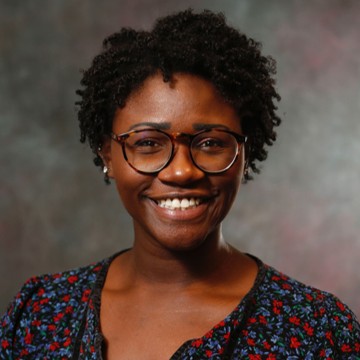Short Courses
Prior to the main conference, US HUPO is pleased to offer a variety of short courses, which will take a deeper dive into a variety of proteomics-related topics. Attendees can register for the full conference or just a short course.
Short Course Fees
|
Short Course Categories: |
Two-Day |
Full Day |
1/2 Day |
| US HUPO Member | $425 | $300 | $150 |
| Non-Member | $525 | $400 | $200 |
|
US HUPO Member Student / Post-Doc |
$325 | $250 | $125 |
|
Non-Member Student / Post-Doc |
$425 | $300 | $150 |
** Two day and full day short courses include a boxed lunch and two refreshment breaks (per day). Half day short courses include a refreshment break.
Questions?
Contact the Conference Organizers by phone at 503.244.4294 x1006 or email Register@ConferenceSolutionsInc.com
Short Course Offerings
Click the title below to view more details on each session:
Saturday, February 21
- 9:00 am - 4:00 pm
Sunday, February 22
- 9:00 am - 12:00 pm
- 9:00 am - 4:00 pm
Quantitative Data Analysis for Proteomics
Two-Day Course: Saturday, February 21 and Sunday, February 22 | 9:00 am - 4:00 pm (each day)
This course will cover both theory and practice for analyzing quantitative proteomics data. The course will be a mixture of both "lecture" and "lab" portions. The "lectures" will discuss best practices, considerations, and pitfalls for interpreting label-free and labeled measurements, including those produced by DDA, DIA, PRM, TMT/iTRAQ, and SILAC methods. The "labs" will give students a chance to explore and analyze raw data from different instrument platforms with open-source tools using Windows laptops that they either bring with them or have remote access to. While participants are highly recommended to bring their own computers to get the full experience, participants without Windows laptops will be able to join up as teams to analyze datasets. The goal of this course is to give students a foundation for how data analysis tools work and to build an intuition for what data analysis challenges lurk in their datasets. A portion of the class will be devoted to "office hours" where students will get a chance to discuss their specific quantitative proteomics challenges. Audience: proteomics researchers at all levels that want to learn what common proteomics data analysis tools/methods are doing, how they work, and where they break down.
Presenters:
|
|
Brian Searle Assistant Professor, Mayo Clinic, Rochester, Minnesota |
 |
Ariana Shannon Postdoctoral Research Fellow, Mayo Clinic, Rochester, Minnesota |
Introduction to Machine Learning and Artificial Intelligence for Proteomics Data Analysis
One-Day Course: Saturday, February 21 | 9:00 am - 4:00 pm
Machine learning—and correspondingly, artificial intelligence—has become a dominant technology for data-intensive discovery in nearly all scientific domains. Today, almost all biomedical research employs machine learning techniques to derive new knowledge from complex biological data. This course will introduce the fundamentals of machine learning with a specific focus on the analysis of proteomics data, through a series of lectures and hands-on labs.
The primary goal of this course is to promote data literacy for people new to machine learning. Students who complete the course will be equipped to critically evaluate uses of machine learning in scientific literature, recognize common pitfalls, perform basic machine learning analyses, and know when to consult a machine learning expert—and how to communicate with them.
The topics that will be covered include:
- What is machine learning?
- Types of machine learning tasks
- The bias-variance trade-off
- Machine learning model evaluation
- Linear models and logistic regression
- Decision tree-based models
- Neural networks and artificial intelligence
Course participants will:
-
Recognize when machine learning methods may be beneficial for their research.
-
Identify common pitfalls in the application of machine learning methods.
-
Gain confidence to provide constructive feedback for applications of machine learning in the manuscripts they review.
-
Evaluate the strengths and weaknesses of machine learning approaches presented in the scientific literature.
-
Gain familiarity with additional resources to deepen their understanding of machine learning.
Prerequisites: All participants will need to bring a laptop to perform the lab exercises during the course. A familiarity with proteomics data analysis is recommended. No machine learning experience is needed. No programming experience is necessary; however, some programming experience in any language is recommended and we will introduce Python as part of the course.
Presenters:
|
|
Will Fondrie Manager, Computational Biology, Talus Biocience, Seattle, Washington |
Top-Down For the Masses
One-Day Course: Saturday, February 21 | 9:00 am - 4:00 pm
The goal of this course is for you to gain the ability to produce and interpret publishable (ideally world-class), deep sequence coverage, Top-Down Mass Spectrometry (TDMS) data. All learners, including current TDMS practitioners, will learn recent advances in internal fragmentation assignment that avoid pervasive false-positive and false-negative assignments and often improve sequence coverage by an order of magnitude.
This course has the following learning objectives:
1) Recognize problems well-suited for TDMS.
2) Design and perform TDMS experiments best suited for your particular sample, scientific question, and instrumentation. You will improve mastery using problem sets where you design sample preparation, fractionation, and MS methods best suited for particular preparations and scientific problems. This marks the end of morning session.
3) Interpret TDMS data, including internal fragments, manually and using free software (bring a Windows based computer if you can).
4) Evaluate your interpretation skills and improve them as needed. Here you will be given spectra to interpret, enough time to enjoy the experience, and will then compare your work to "gold-standard" analysis validated by established TDMS laboratories.
5) Avoid common pitfalls in TDMS experiments and data analysis.
For those new to TDMS or even MS, basic spectral interpretation skills and MS operational principles will be taught briefly. If you're uncertain of being adequately prepared but are dedicated to becoming so, online introductory tutorials in spectral interpretation and instrumentation will provided in advance.
Presenters:
|
|
Jeff Agar Associate Professor, Northeastern University, Boston, Massachusetts |
Single Cell to Spatial Proteomics
Half-Day Course: Sunday, February 22 | 9:00 am - 12:00 pm
The purpose of this half day course is to gain fundamental knowledge on state-of-the-art single cell to spatialomics proteomic practices, enable discussion on the reality of single cell to spatialomics practices, and build a scholarly support network for proteomic research. The course will be taught in three case studies spanning single cell proteomics by LC-MS/MS, combining proteomics with other ‘omic workflows, and leveraging spatial proteomics for studies on the tissue microenvironment.
Lectures by leading scientists will present case studies on single cell to spatialomics with discussion and perspectives to include:
- Considerations for sample storage and preparation
- Deployment of internal standards
- Proteomic analysis strategies: Instrumentation and data analysis
- Multiomic capabilities: Integrating with current workflows
The workshop is for researchers within the proteomic community who wish to update or inform themselves on current trends in single cell to spatial proteomics.
Study Topics and Lecturers:
- Discovery of Novel Cell Phenotypes Using Single Cell Proteomics: A Case Study on Aortic Aneurysm. Discussion led by Sarah Jessica Parker, Cedars Sinai. This case study focuses on a step-by-step discussion of single sample preparation to data analysis and integration with spatial proteomics.
- Deploying Multiomic Analysis with Proteomics Approaches: Studies on Aging, Osteoarthritis, and Age-Related Diseases. Discussion led by Birgit Schilling, Buck Institute. The lecture focuses on studies integrating multiomic workflows with existing proteomic and spatial proteomic workflows.
- Implementing Multiomic Studies for Spatial Pathology from One of a Kind Clinically Archived Breast Cancer Tissues. Discussion led by Peggi Angel, Medical University of South Carolina. The lecture focuses leveraging multiomic workflows targeting glycomics, extracellular, and cellular proteomics on single tissue sections.
Presenters:
|
|
Peggi Angel Associate Professor, MUSC, Charleston, South Carolina |
 |
Birgit Schilling Professor, Buck Institute, Novato, California |
 |
Sarah Parker Associate Professor, Cedars-Sinai Medical Center, Los Angeles, California |
LC-MS 101: Everything You Ever Wanted to Know But Were Afraid to Ask
One-Day Course: Sunday, February 22 | 9:00 am - 4:00 pm
Most proteomics measurements utilize liquid chromatography separations coupled with high resolution/mass accuracy mass spectrometry. With these technologies maturing, it becomes possible to collect data while treating the LC-MS platform as a black box, not fully understanding what’s going on inside. This practical lecture-style short course will be divided into three topics: separations, ionization and mass measurement. The separations portion will delve into the basics of LC separations, primarily focusing on reversed phase LC but also briefly touching on other modes. We will discuss sample loading and injection strategies, column dimensions, throughput and flow rate considerations. We will utilize some common free software tools to optimize our separations within the constraints of specific instrument capabilities, and students will be invited to follow along with these software tools on their own as desired. We will then describe electrospray ionization and practical considerations to increase robustness, stability and sensitivity. For the mass spectrometry portion, we will describe the ion path and ion optics encountered in modern mass spectrometers, the (very) basics of mass spectrum interpretation and the mass analyzers commonly encountered in proteomics. The course will be highly interactive such that students will be able to get their own questions answered. The target audience is users of LC-MS-based proteomics technologies who either need a refresher or who have never had formal instruction on the use of the instrumentation.
Presenters:
|
|
Ryan Kelly Professor, Brigham Young University, Provo, Utah |
Capturing the Stable and Transient Protein-Protein Interactions
One-Day Course: Sunday, February 22 | 9:00 am - 4:00 pm
This course will introduce various proteomics techniques for studying stable and transient protein-protein interactions, including affinity purification, proximity labeling, and cross-linking methods. The aim is to provide practical tips on study design, experimental optimization, data analysis, and troubleshooting for protein interaction studies. Protein interaction experiments are often challenged by nonspecific binding, experimental variability, contamination, false discoveries, and data analysis bottlenecks. This course will provide practical strategies to address these challenges and optimize experimental design. Instructors with expertise in affinity purification, proximity labeling, and cross-linking techniques will present real-life examples of problems, common pitfalls, and effective solutions. Through both successful and failed experimental examples, attendees will gain insight into best practices for refining protocols, improving data reliability, and overcoming computational hurdles. An interactive discussion session will also be included, giving attendees the opportunity to share their experience and challenges in protein interaction experiments.
Presenters:
|
|
Ling Hao Associate Professor, University of Maryland, College Park, Maryland |
 |
Lan Huang Professor, University of California-Irvine, Irvine, California |
 |
Edward Huttlin Instructor, Harvard Medical School, Cambridge, Massachusetts |

.png)





